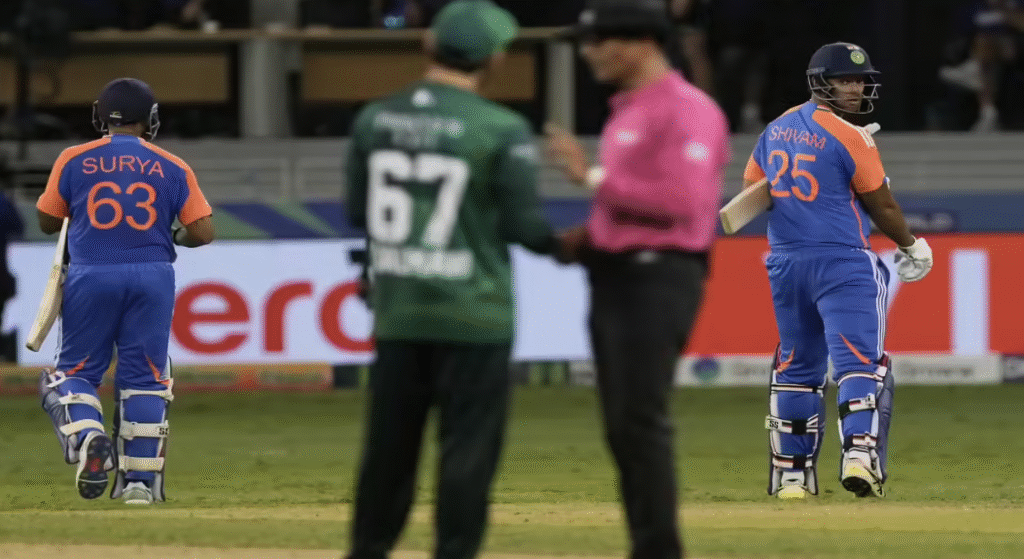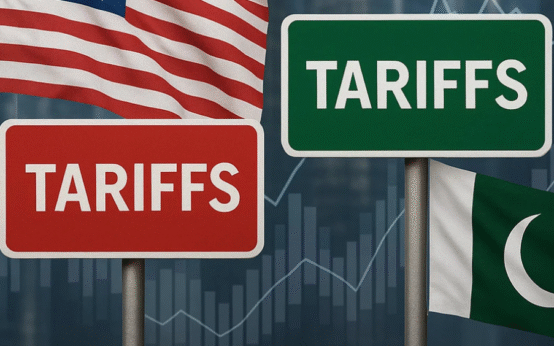Pakistan Cricket Board has taken the rare step of banning Andy Pycroft, a veteran cricket match referee, from entering Pakistan. Pycroft’s actions during this game stirred controversy, eventually prompting the PCB to lodge formal complaints and to ban him from accepting readings in future matches in Pakistan.
What led to the ban on Andy Pycroft’s entry by Pakistan
The controversy started during the Pakistan vs India match in the Asia Cup. Normally, cricket matches begin with a toss where captains shake hands, and often at the end of the match there is a handshake ceremony or some formal gesture of sportsmanship. But in this case, the handshake did not happen. Pakistan argues that Pycroft instructed Pakistan’s captain, Salman Ali Agha, not to shake hands with the Indian captain, Suryakumar Yadav, at the toss.

In the days following the match, PCB Chairman Mohsin Naqvi publicly expressed that Pakistan viewed Pycroft’s instruction as unfair, arguing he failed in his duty to ensure fairness. The PCB filed a formal complaint with the ICC and with the MCC, demanding Pycroft’s removal from officiating duties in the Asia Cup. Then, the Interior Ministry in Pakistan reportedly issued a ban on Andy Pycroft’s entry into the country.
PCB’s claims: breaches of spirit, rules, and fairness
In its formal protest, the PCB argued that Pycroft violated both the ICC Code of Conduct and MCC Laws related to the Spirit of Cricket. They said a match referee must preserve fairness, ensure that expected courteous exchanges like handshakes occur unless there is a reason not to, and maintain neutrality. By allegedly directing captains not to shake hands, they say Pycroft over-stepped his role.
PCB also claims that Pycroft told Pakistan’s media manager that the handshake instruction should not be recorded. In response, Pakistan’s skipper Salman Ali Agha did not attend the post-match ceremony. The PCB says this breach of sportsmanship is significant: it undermines trust, goodwill, and the tradition of cricket—especially in high-pressure matches between these two countries.
Reactions from India, Cricketing Authorities, and Fans
Some Indian players and spokespeople have defended their actions. India captain Suryakumar Yadav reportedly said that their team acted in alignment with their board and that some political factors influenced their behavior.
The ICC and MCC, whose laws and codes the PCB cites, have not yet issued a full public verdict or announced any penalties. Some observers believe the PCB has taken a strong stance to protect the image of Pakistani cricket, insisting that cricket must remain above political influence and symbolic gestures.
Possible consequences tournament implications and diplomatic tension
Because of the ban on Pycroft, Pakistan risks a few consequences. One is that ICC or Asian Cricket Council might object to a domestic entity denying entry to an international official. If Pycroft is barred from entering Pakistan, it may affect how Pakistan hosts future international matches, especially involving teams where Pycroft is assigned as referee.
That threat underscores how seriously the PCB considers the matter it is not simply a rule breach in one match but, in their view, a matter of national pride, fairness, and sports diplomacy. Fans in Pakistan and abroad remain divided some support the PCB’s decision, while others argue it unnecessarily escalates the situation.


 Pakistan Among Early Adopters of Wi-Fi 7 in Asia-Pacific
Pakistan Among Early Adopters of Wi-Fi 7 in Asia-Pacific  Pakistan’s Struggle to Reduce Poverty
Pakistan’s Struggle to Reduce Poverty  Pakistan Poised to Launch 5G Services in Coming Months
Pakistan Poised to Launch 5G Services in Coming Months  $500m deal, an economic diversification in USA-Pak ties
$500m deal, an economic diversification in USA-Pak ties  Pakistan Demands Urgent UN Action to End Gaza Crisis
Pakistan Demands Urgent UN Action to End Gaza Crisis  Pakistan and China Seal USD 4 Billion Agricultural MoUs
Pakistan and China Seal USD 4 Billion Agricultural MoUs